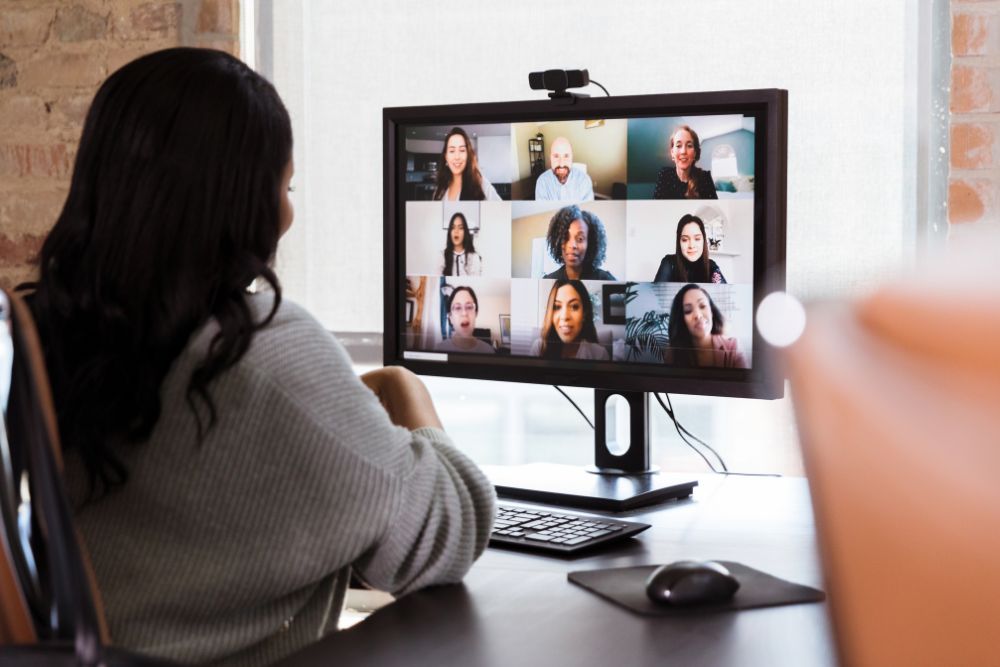While business trips were often considered a necessary evil in the past, more and more business travelers now recognize the potential to make their trips valuable and enriching experiences. In this article, we will look at how business travel behavior has evolved and why longer, experience-focused business trips are becoming increasingly popular.
The evolution of business travel
The pandemic fundamentally changed the way we travel. It not only temporarily halted business travel but also had a lasting impact on the expectations and behaviors of business travelers. Companies and employees had to find new ways to make travel safe and efficient, leading to increased demand for flexible booking options and real-time updates. It also made us be more conscious about our travel decisions. People started thinking about was it really necessary to travel or could the same business trip be turned into a series of zoom meetings?
The role of leisure in shaping business travel
The lines between business and leisure travel are becoming increasingly blurred. Many business travelers take the opportunity to combine their trips with leisure activities. This trend, often referred to as “bleisure” (business + leisure), means that business travelers are changing their travel profiles and expectations. They seek experiences that go beyond pure business activities and enrich their trips.
The shift towards longer business trips
Increasing duration of trips
Data shows that the duration of business trips is increasing. According to a study by the Global Business Travel Association (GBTA), the average duration of business trips has increased by 25% over the past five years. While short, targeted trips of one to two days used to be the norm, many business travelers now plan stays of an average of four to five days. This allows them to more thoroughly achieve their goals while also getting to know their destination better.
Reasons for longer stays
Why are more and more business travelers opting for longer stays? There are several reasons. One key aspect is maximizing productivity. Longer trips allow employees to spend more time on-site and work on projects more thoroughly. Another advantage is reducing travel stress and focusing on mental well-being.
Frequent travel can be stressful, and unexpected issues often arise on business trips. However, longer stays reduce the pressure of constant travel. Additionally, business travelers take the opportunity to discover new cultures and places, making their trips more enriching and providing valuable personal experiences.

The rise of purposeful travel
Purposeful travel means that each trip has a clear and meaningful purpose that goes beyond the business necessity. It is about maximizing the benefit and experience of the business trip by pursuing both professional and personal goals.
Purposeful travel is more than just attending business meetings; it includes making new contacts, deepening existing business relationships, and experiencing the culture and environment of the destination. Through this holistic approach, business travelers can increase their efficiency while also gaining personal enrichment. This type of travel requires careful planning and an understanding of the specific goals and expectations that go beyond professional tasks.
Business travelers no longer want to stay at their destination for just 24 hours but use longer stays to experience more. These changes are driving demand for business travel in new ways.. Business travelers are flying less but staying longer, leading to higher ticket prices and transaction values.
The role of Travel Management Companies (TMCs)
Travel management companies (TMCs) play a central role in supporting the new trends in business travel management. TMCs offer customized solutions that enable companies to plan and conduct longer and purposeful business trips efficiently. These companies specialize in organizing and managing business travel, using state-of-the-art technologies and comprehensive services to optimize the entire travel process.
A key aspect of TMC services is support in fulfilling duty of care. TMCs ensure that companies can provide good care for their employees throughout their trips. This includes real-time updates on travel security information, emergency support, and the provision of safe travel options.
Furthermore, TMCs help companies save costs. Through their extensive industry knowledge and negotiation skills, TMCs can secure better rates for flights, accommodations, and other travel services. With advanced analytics tools, TMCs monitor travel costs and identify potential savings, helping companies better control and reduce their expenses.
Meaningful business experiences are here to stay
The trend towards longer, experience-centered business trips is likely to continue. Companies and travel management service providers must not only accept this change but actively shape it to offer their employees the best travel experiences.
Do you want to learn more about the latest trends in business travel management and how you can optimize your business trips? Check out our blog on travel trends for 2024 and discover how you can integrate purposeful travel into your company. Let’s shape the future of business travel together!
Future outlook
Longer business trips and more personalization may result in higher costs but also offer potential savings through more efficient travel planning and better negotiation of flight and accommodation prices. Companies need to adjust and optimize their travel budgets accordingly.
Personalization in business travel management
Personalizing business travel is essential to meet changing needs. This includes tailored travel profiles, individual booking preferences, and personalized travel experiences that cater to the specific requirements of business travelers.
The future of business travel
The future of business travel will likely be even more characterized by flexibility and experience orientation. Companies and travel management service providers must continuously adapt to meet these trends. Technological innovations play an important role in providing real-time updates and seamless travel experiences.
The changes in the business travel industry offer a great opportunity to improve the travel experience for all involved. By embracing longer and more meaningful trips, we can not only increase efficiency and productivity but also gain personally enriching experiences and impressions.


